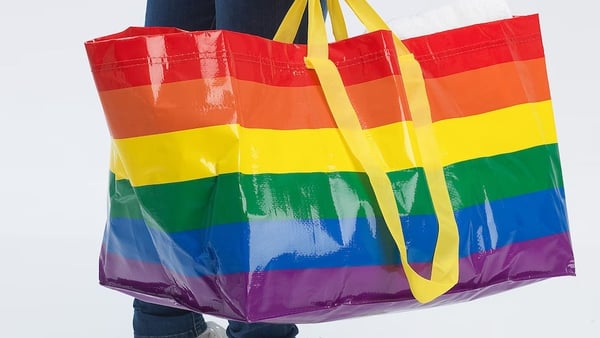Analysis: Saudia Arabia believe a massive investment in sport will effectively divert attention away from its poor human rights record
Few things in the world are as powerful as sports in rallying support. In 2005, after the Ivory Coast football team qualified for their first ever World Cup finals, the team pleaded on their knees to their fellow Ivorians to stop the civil war. Their speech convinced the two sides to ceasefire and start peace negotiation. If sports can bring peace to a war-torn country, why can't it whitewash a country’s reputation?
Saudi Arabia appears to think so as the country is investing heavily in sports. In soccer, Saudi Pro League’s Al Hilal recently made headlines for bidding €300 million for French superstar forward Kylian Mbappé. Last year, another Saudi Arabia club Al Nassr signed one of the most recognisable names in world football in Cristiano Ronaldo, who is now reportedly being paid more than €200 million a year. Many other high-profile footballers, such as Karim Benzema (2022 Ballon d’Or winner), N’Golo Kante (a 2018 World Cup winner), Neymar (the Brazilian star formerly of Barcelona and Paris Saint-Germain) and Jordan Henderson (Liverpool’s captain) are moving to the Saudi Pro League this year.
We need your consent to load this rte-player contentWe use rte-player to manage extra content that can set cookies on your device and collect data about your activity. Please review their details and accept them to load the content.Manage Preferences
From RTÉ Radio 1's Today with Claire Byrne, sports journalist Gavin Cooney from The42.ie and James Lynch from human rights research group Fairsquare on how Saudi money is attracting European footballers
Away from football, Saudi Arabia has hosted the Formula One Grand Prix since 2021 and agreed to merge its LIV golf tour with the PGA Tour. They even tap into less conventional sports: the Saudi Esports Federation hosted a major gaming festival, Gamers8, which saw the best players competing in popular esports titles like StarCraft II, CS: GO and Fortnite.
Why is Saudi Arabia doing this? According to the Saudi Vision 2030 programme, the nation wants to reduce its economic reliance on oil, and their plan aims to diversify its investment to other industries. However, is the sports industry lucrative enough for this level of investment?
Remember that their expected return on investment is not directly from revenue generated from sports itself. Rather, sports is used as a platform to whitewash Saudi Arabia’s reputation of poor human rights record and it is a re-branding strategy. After all, countries operate as brands in consumers’ minds, and we make stereotypical judgments when products are associated with certain countries.
We need your consent to load this rte-player contentWe use rte-player to manage extra content that can set cookies on your device and collect data about your activity. Please review their details and accept them to load the content.Manage Preferences
From RTÉ 2fm's Dave Fanning Show, Chief Football Writer with The Independent UK Miguel Delaney on Saudi Arabia's Public Investment Fund's purchase of Newscasle United and other sportswashing ventures
"Sportswashing" can be an effective re-branding strategy for several reasons. Firstly, the mere association with sports generates positive spillover effects. Sports brings excitement, entertainment, hope, celebration, and victory, just to name a few emotion-arousing qualities.
These positive attributes are then rubbed onto those associated with it. For example, Coca-Cola, which at its core is just a drink, is associated with happiness and celebration. This is largely due to their marketing efforts to partner with major sporting events like the FIFA World Cup and the Olympic Games. The consistent associations among specific stimuli (e.g., Saudi Arabia and sports) condition people to wire these stimuli together in their brain. Consequently, when people recall one of these stimuli, other associated attributes of other stimuli are also recalled. People are likely to recall the positive attributes of sports when they think of Saudi Arabia.
Secondly, "sportswashing" figuratively washes news and search results on the internet. For example, the first page of search results on Google News currently for "Saudi Arabia" are all sports news. Most are reporting on Neymar's mooted move to join the Saudi Pro League, and there is one reporting MMA champion Francis Ngannou will be fighting in Riyadh, Saudi Arabia in October.
We need your consent to load this rte-player contentWe use rte-player to manage extra content that can set cookies on your device and collect data about your activity. Please review their details and accept them to load the content.Manage Preferences
From RTÉ Radio 1's This Week in 2018, Carole Coleman reports on the pressure mounting on Saudi Arabia over the death of journalist Jamal Khashoggi in Turkey
All these are considered more newsworthy than reports on the imprisonment of women for peaceful expression in support of women’s rights. I only read about the arrest of Saudi social media influencers for their support of women’s rights among other things on the third page of Google News. Recent data suggests that less than 1% of users go beyond the first page of Google search results so people searching for Saudi Arbaia are constantly fed with sports related news that do not paint the country in a negative light.
Third, "sportswashing" can penetrate communities by preying on sports related social identity. Sports teams are an important piece of many people’s identities. Such social identity creates a tribalism effect where the bad behaviours of in-group members (i.e., fellow supporters of the sports team) are defended and justified.
Last year, Chelsea fans chanted in support of Roman Abramovich, the then Russian oligarch owner of the club, during a Ukraine tribute. An experiment also shows that people are more likely to help injured strangers wearing a jersey of the football team they support than those wearing a jersey of an unbranded sports shirt. With "sportswashing", Saudi Arabia turns sports fans into zealous bastions of their brand.
Saudi Arabia is only one of the many brands to use this strategy to re-brand itself
Lastly, "sportswashing" helps people to live with the negative feelings associated with unethical wrongdoings. Consumers have a systematic bias to remember ethical information better than unethical information of a brand. Even though they believe remembering wrongdoings of brands is the right thing, people are willfully ignorant in order to avoid negative emotion associated with wrongdoings.
For example, while people are aware that Uyghurs are coerced to produce Xinjiang cotton, they rather want to think about the quality of the fabric than the Uyghur camps when they are shopping. Similarly, people want to remember sports celebrations more than human rights when they think of Saudi Arabia.
Many hate "sportswashing" for its intention, but they cannot deny its effectiveness. Saudi Arabia is only one of the many brands to use this strategy to re-brand itself.
The views expressed here are those of the author and do not represent or reflect the views of RTÉ



